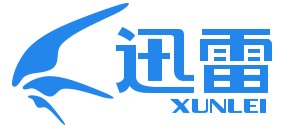
Streaming media refers to multimedia for playback using an offline or online media player that is delivered through a network. Media is transferred in a "stream" of packets from a server to a client and is rendered in real-time; this contrasts with file downloading, a process in which the end-user obtains an entire media file before consuming the content. Streaming is presently most prevalent in video-on-demand, streaming television, and music streaming services over the Internet.

Akamai Technologies, Inc. is an American delivery company that provides content delivery network (CDN), cybersecurity, DDoS mitigation, and cloud services. Headquartered in Cambridge, Massachusetts, it operates a worldwide network of servers whose capacity it rents to customers running websites and other web services.

A content delivery network or content distribution network (CDN) is a geographically distributed network of proxy servers and their data centers. The goal is to provide high availability and performance ("speed") by distributing the service spatially relative to end users. CDNs came into existence in the late 1990s as a means for alleviating the performance bottlenecks of the Internet as the Internet was starting to become a mission-critical medium for people and enterprises. Since then, CDNs have grown to serve a large portion of the Internet content today, including web objects, downloadable objects, applications, live streaming media, on-demand streaming media, and social media sites.

Internet Protocol television (IPTV), also called TV over broadband, is the service delivery of television over Internet Protocol (IP) networks. Usually sold and run by a telecom provider, it consists of broadcast live television that is streamed over the Internet (multicast) — in contrast to delivery through traditional terrestrial, satellite, and cable transmission formats — as well as video on demand services for watching or replaying content (unicast).
Speedera Networks, founded in 1999, was a content delivery network (CDN) company that emerged in the late 1990s to advance technology applications for Internet communications and collaboration and became the first CDN to turn a profit. On June, 2005, Akamai acquired Speedera Networks.

Edgio, Inc., evolved from Limelight Networks, a 20-year provider content delivery services to stream digital content over the internet. Following a 2022 acquisition of Edgecast, the company re-branded as Edgio and has grown to offer a full suite of edge-enabled applications that run on the company's globally scaled network. These applications include video workflow and automation, website acceleration, and cyber security. As of January 2023, the company's network has more than 300 points-of-presence and delivers with 250+ terabits per second of egress capacity across the globe.

Xunlei Limited is a Chinese multinational technology company and an online service provider founded in 2003. The subsidiary of Xunlei Limited, Shenzhen Xunlei Networking Technologies, Co., Ltd. was formerly known as Sandai Technologies (Shenzhen) Inc. and changed its name to Shenzhen Xunlei Networking Technologies, Co., Ltd. in May 2005. Its headquarters are in Nanshan District, Shenzhen.
The Facebook Platform is the set of services, tools, and products provided by the social networking service Facebook for third-party developers to create their own applications and services that access data in Facebook.

Highwinds Network Group, Inc. (Highwinds) was a company founded in 2002 that offered IP services including content delivery network (CDN), cloud storage, IP transit, transport and colocation. The company headquarters were located in Winter Park, Florida, United States. Highwinds maintained Network Operations Centers (NOCs) in Winter Park, FL, Phoenix, AZ, and Amsterdam, Netherlands as well as offices in Costa Mesa, CA, São Paulo, Brazil and London, England. The Highwinds network, called RollingThunder, consisted of more than 70 points of presence throughout North America, South America, Europe, Asia and Australia. Highwinds provided video streaming services to media companies including Blip.TV and Hudl, delivered online games for publishers such as Valve and CCP Games and distributed advertising assets for leading platforms including Facebook's LiveRail.
Amazon CloudFront is a content delivery network (CDN) operated by Amazon Web Services. The content delivery network was created to provide a globally-distributed network of proxy servers to cache content, such as web videos or other bulky media, more locally to consumers, to improve access speed for downloading the content.

ChinaCache, Inc. is a Chinese company that provides Internet content and application delivery services. It was founded in 1998 by Song Wang.
Edgecast Networks, Inc. was a subsidiary of Yahoo! Inc. and provider of content delivery network (CDN) and video streaming services. Founded in 2006, it was notable for being a self-provisioning CDN technology used by the telecommunication and hosting industries.
Dynamic Adaptive Streaming over HTTP (DASH), also known as MPEG-DASH, is an adaptive bitrate streaming technique that enables high quality streaming of media content over the Internet delivered from conventional HTTP web servers. Similar to Apple's HTTP Live Streaming (HLS) solution, MPEG-DASH works by breaking the content into a sequence of small segments, which are served over HTTP. An early HTTP web server based streaming system called SProxy was developed and deployed in the Hewlett Packard Laboratories in 2006. It showed how to use HTTP range requests to break the content into small segments. SProxy shows the effectiveness of segment based streaming, gaining best Internet penetration due to the wide deployment of firewalls, and reducing the unnecessary traffic transmission if a user chooses to terminate the streaming session earlier before reaching the end. Each segment contains a short interval of playback time of content that is potentially many hours in duration, such as a movie or the live broadcast of a sport event. The content is made available at a variety of different bit rates, i.e., alternative segments encoded at different bit rates covering aligned short intervals of playback time. While the content is being played back by an MPEG-DASH client, the client uses a bit rate adaptation (ABR) algorithm to automatically select the segment with the highest bit rate possible that can be downloaded in time for playback without causing stalls or re-buffering events in the playback. The current MPEG-DASH reference client dash.js offers both buffer-based (BOLA) and hybrid (DYNAMIC) bit rate adaptation algorithms. Thus, an MPEG-DASH client can seamlessly adapt to changing network conditions and provide high quality playback with few stalls or re-buffering events.
Conviva is a venture-backed, privately held company, offering services for online video optimization and online video analytics. Conviva is headquartered in Silicon Valley with offices in New York and London.

Abbas Rajabifard is a Professor and the Director of the Smart and Sustainable Development and Discipline Leader of the Geomatics Department of Infrastructure Engineering in the Faculty of Engineering and IT at the University of Melbourne, Australia. He is also the Director of the Center for Spatial Data Infrastructures and Land Administration (CSDILA).
An online video platform (OVP) enables users to upload, convert, store, and play back video content on the Internet, often via a private server structured, large-scale system that may generate revenue. Users will generally upload video content via the hosting service's website, mobile or desktop application, or other interfaces (API), and typically provides embed codes or links that allow others to view the video content.

Dacast Inc. is a French live streaming online video platform that allows businesses to broadcast and host live and on-demand video content as well as offer free or paid programming.

Fastly, Inc. is an American cloud computing services provider. It describes its network as an edge cloud platform, which is designed to help developers extend their core cloud infrastructure to the edge of the network, closer to users. The Fastly edge cloud platform includes their content delivery network (CDN), image optimization, video and streaming, cloud security, and load balancing services. Fastly's cloud security services include denial-of-service attack protection, bot mitigation, and a web application firewall.











